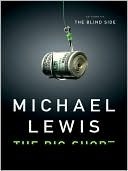More on this book
Community
Kindle Notes & Highlights
When a Wall Street firm helped him to get into a trade that seemed perfect in every way, he asked the salesman, “I appreciate this, but I just want to know one thing: How are you going to fuck me?”
Heh-heh-heh, c’mon, we’d never do that, the trader started to say, but Danny, though perfectly polite, was insistent. We both know that unadulterated good things like this trade don’t just happen between little hedge funds and big Wall Street firms. I’ll do it, but only after you explain to me how you are going to fuck me. And the salesman explained how he was going to fuck him. And Danny did the trade.
“My nature is not to have friends,” he said. “I’m happy in my own head.”
no school could teach someone how to be a great investor. If it were true, it’d be the most popular school in the world, with an impossibly high tuition. So it must not be true.”
People who worry about seeming sufficiently committed to medicine probably aren’t sufficiently committed to medicine.
He also didn’t like the idea of taking the risk of selling a stock short, as the risk was, theoretically, unlimited. It could only fall to zero, but it could rise to infinity.
Above the roulette tables, screens listed the results of the most recent twenty spins of the wheel. Gamblers would see that it had come up black the past eight spins, marvel at the improbability, and feel in their bones that the tiny silver ball was now more likely to land on red. That was the reason the casino bothered to list the wheel’s most recent spins: to help gamblers to delude themselves. To give people the false confidence they needed to lay their chips on a roulette table. The entire food chain of intermediaries in the subprime mortgage market was duping itself with the same trick,
...more
How do you explain to an innocent citizen of the free world the importance of a credit default swap on a double-A tranche of a subprime-backed collateralized debt obligation? He tried, but his English in-laws just looked at him strangely. They understood that someone else had just lost a great deal of money and Ben had just made a great deal of money, but never got much past that. “I can’t really talk to them about it,” he says. “They’re English.”
“Being short in 2007 and making money from it was fun, because we were short bad guys,” said Steve Eisman. “In 2008 it was the entire financial system that was at risk. We were still short. But you don’t want the system to crash. It’s sort of like the flood’s about to happen and you’re Noah. You’re on the ark. Yeah, you’re okay. But you are not happy looking out at the flood. That’s not a happy moment for Noah.”
“The investment banking industry is fucked,” Eisman had said six weeks earlier. “These guys are only beginning to understand how fucked they are. It’s like being a scholastic, prior to Newton. Newton comes along and one morning you wake up: ‘Holy shit, I’m wrong!’
Maybe the best definition of “investing” is “gambling with the odds in your favor.”
the big short
A few Wall Street CEOs had been fired for their roles in the subprime mortgage catastrophe, but most remained in their jobs, and they, of all people, became important characters operating behind the closed doors, trying to figure out what to do next. With them were a handful of government officials—the same government officials who should have known a lot more about what Wall Street firms were doing, back when they were doing it. All shared a distinction: They had proven far less capable of grasping basic truths in the heart of the U.S. financial system than a one-eyed money manager with
...more
there’s a difference between an old-fashioned financial panic and what had happened on Wall Street in 2008. In an old-fashioned panic, perception creates its own reality: Someone shouts “Fire!” in a crowded theater and the audience crushes each other to death in its rush for the exits. On Wall Street in 2008 the reality finally over-whelmed perceptions: A crowded theater burned down with a lot of people still in their seats.


